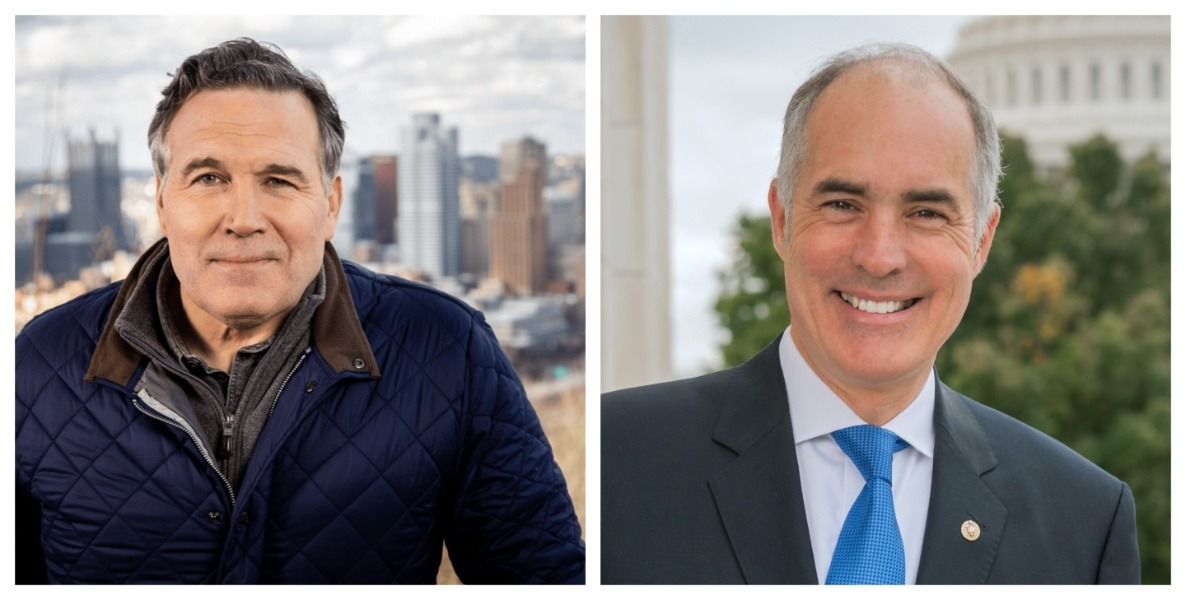The departure of Senator Bob Casey Jr. from the U.S. Senate closes a pivotal chapter in Pennsylvania’s political history. For nearly two decades, Casey stood as a results-driven advocate for the Commonwealth, securing billions in federal funding for healthcare, transportation, and economic development. His ability to bridge Pennsylvania’s urban and rural divides left an undeniable mark on the state’s political landscape. With Senator-elect Dave McCormick preparing to take office, PA finds itself at a crossroads, facing shifting political winds and critical questions about what lies ahead.
Casey’s tenure exemplified the power of quiet, effective leadership. In Washington, his seniority and strong relationships made him a champion for Pennsylvania. He directed much-needed infrastructure funds to repair bridges and modernize Philadelphia’s Southeastern Pennsylvania Transportation Authority (SEPTA) while ensuring rural hospitals remained operational. These bipartisan achievements resonated with voters across ideological divides, further reinforcing his reputation as a leader who prioritized results over rhetoric. [Full disclosure: My firm, Bellevue Strategies, has worked with Casey’s office on projects throughout the Commonwealth.]
Philadelphia reaped some of the greatest benefits from Casey’s advocacy. Federal investments he championed helped modernize public transit, expand clean energy projects, and address the city’s affordable housing crisis. Notably, Casey was instrumental in securing critical federal funding for Philadelphia’s public schools during the Covid pandemic, which provided essential resources for facility repairs, staff hires, and expanded programming. These efforts updated the city’s aging infrastructure and laid the foundation for long-term economic and educational growth and equity. With Casey gone, there are concerns that these vital funding streams may dry up, jeopardizing progress on critical projects.
Casey’s moderate style allowed him to build a coalition of voters across ideological and geographic lines, making him a key player in maintaining Democratic strength in a state pivotal to national elections.
This uncertainty extends across the Commonwealth. Casey’s departure is a significant loss for the Democratic Party, particularly in a battleground state where elections are closely contested. PA’s political landscape requires a delicate balance of urban, suburban, and rural interests — a balance Casey mastered. His moderate style allowed him to build a coalition of voters across ideological and geographic lines, making him a key player in maintaining Democratic strength in a state pivotal to national elections.
For Democrats, Casey’s absence is a stark reminder of the party’s growing challenges in PA. His ability to connect with rural and working-class voters who feel increasingly alienated by national Democratic priorities will not be easily replicated. Recalibrating the party’s message and strategy will be essential if Democrats hope to remain competitive in PA and other key battleground states.
Meanwhile, McCormick’s victory signals a shifting political reality in PA. Running on a platform centered on fiscal conservatism, energy independence, and border security, McCormick capitalized on voter frustrations over inflation, economic uncertainty, and a perceived disconnect between Washington, D.C. and everyday Pennsylvanians. His message resonated particularly well in rural and suburban areas, where many voters feel overlooked by rapid economic and cultural changes.
McCormick’s victory marks a departure from Casey’s bipartisan approach, which secured his victory in prior elections. As PA transitions into this new era, the stakes are high. Can McCormick replicate Casey’s ability to deliver results for the state’s diverse needs?
Will his administration prioritize densely populated cities driving PA’s economic growth while addressing smaller cities’ concerns?
These unanswered questions will shape the Commonwealth’s trajectory under his leadership.
Both parties face critical tests in this new chapter. Democrats must grapple with reconnecting with voters Casey so skillfully united, particularly in rural and working-class communities. Meanwhile, Republicans, led by McCormick, must prove they can deliver for all Pennsylvanians — not just their base. From the bustling streets of Philadelphia to the small towns that dot the state, the stakes are clear: Pennsylvania’s success depends on its leaders’ ability to build on Casey’s legacy while charting a course that reflects the evolving priorities of its people.
Mustafa Rashed is president and CEO of Bellevue Strategies, a government strategy and political consulting firm.
The Citizen welcomes guest commentary from community members who represent that it is their own work and their own opinion based on true facts that they know firsthand.
![]() MORE FALLOUT OF THE 2024 ELECTION
MORE FALLOUT OF THE 2024 ELECTION



